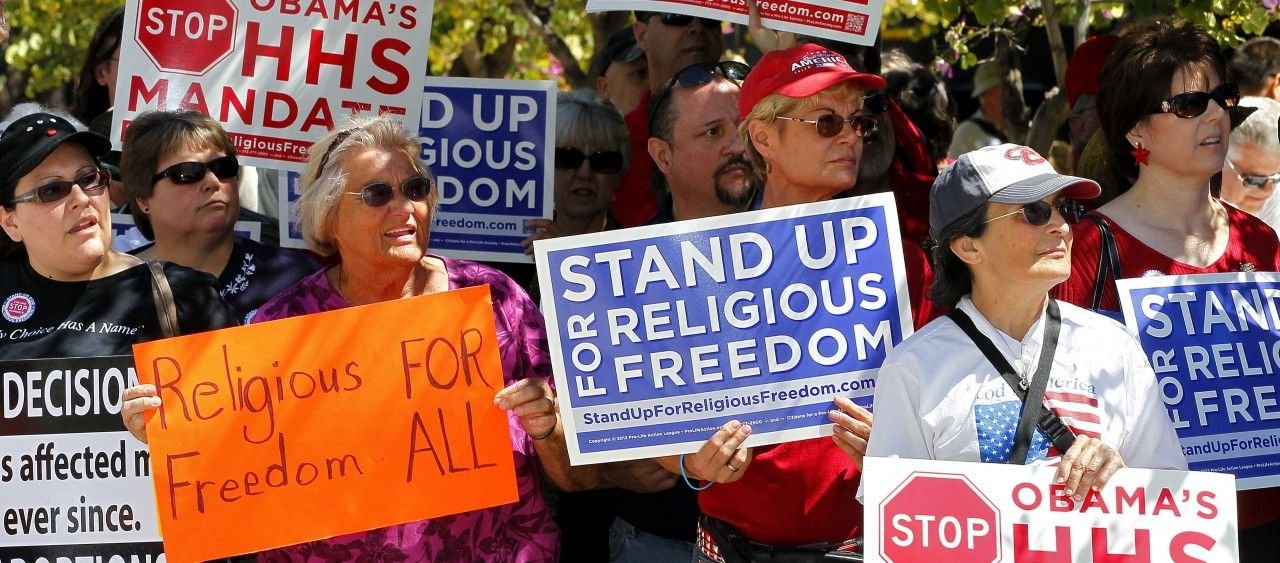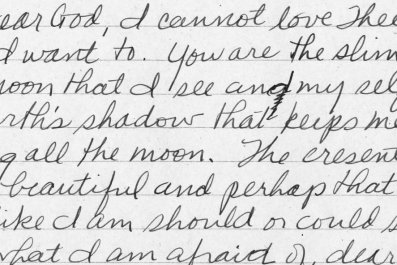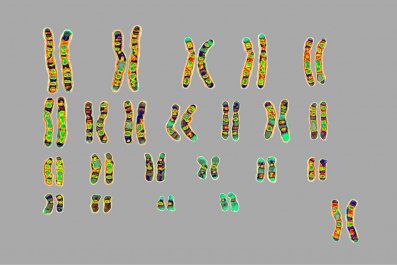Do corporations have religious rights? And if profit-making corporations enjoy religious rights, do those rights trump the legal rights of employees?
This week the United States Supreme Court opened a big can of constitutional worms by agreeing to hear two cases that raise these issues. The corporations are challenging, on religious freedom grounds, a congressional requirement that under Obamacare, health insurance plans include access to all legal forms of birth control at no additional cost.
It is surprising that the high court took up the issue, since it has never found that profit-making corporations enjoy religious rights. The Constitution's framers, who intensely distrusted the corporate form, would be flabbergasted by this news, as would the Supreme Court justices who in 1878 first defined the limits of religious rights.
The suggestion that a business formed to earn profits enjoys First Amendment rights to the free exercise of religion is legally, logically, and philosophically absurd.
Corporations are legal "persons," but they are not people. Under the law, corporations are artificial persons, distinct from their owners, as I teach in my Syracuse University College of Law class on the principles of property and tax.
Since corporations possess neither a brain nor what believers call a soul, they can neither worship deities nor deny their existence, and thus cannot possess religious beliefs, much less exercise them.
In a clever bit of lawyering, attorneys for the David and Barbara Green family of Oklahoma City conflate the legal interests of the family and the corporations they own, which employ more than 13,000 full-time workers. The Green family argues that their First Amendment right to the free exercise of religion extends to the more than 500 Hobby Lobby craft stores and Mardel Christian book stores their corporations own.
Corporate documents articulate the Greens' particular Christian beliefs. Their fidelity to those beliefs is demonstrated in numerous policies, such as closing on Sundays and negotiating contracts with trucking companies that bar carrying alcohol in trailers that have just delivered goods to their companies' stores.
But Hobby Lobby and Mardel are not the Greens.
The whole point of corporations is that they exist separately from the human beings who own them, notes Professor Lynn Stout, who teaches corporate law at Cornell University. This legal barrier insulates owners from liability for corporate debts and misconduct, a privilege rarely granted before 1800 but now readily available by filling out state government forms and paying modest fees.
In this case, the Greens rely on the 1993 Religious Freedom Restoration Act, passed by a nearly unanimous Congress. It declares that "laws 'neutral' toward religion may burden religious exercise as surely as laws intended to interfere with religious exercise [and] governments should not substantially burden religious exercise without compelling justification."
Rights, however, are never absolute, as the Supreme Court has often ruled.
Judge Joe Heaton of federal District Court in Oklahoma City who was appointed by George W. Bush, ruled against the Greens and their companies last year. "Hobby Lobby and Mardel are not religious organizations," Heaton held. "Plaintiffs have not cited, and the court has not found, any case concluding that secular, for-profit corporations such as Hobby Lobby and Mardel have a constitutional right to the free exercise of religion."
A strong counterargument to the Greens is that they would discriminate against women who want the ability to choose a morning-after pill or IUD; that is discrimination on the basis of gender and differing religious views. "The Free Exercise clause protects the beliefs of the employees as much as it protects the beliefs of the employers," Kathryn S. Benedict wrote recently in the Columbia Journal of Gender and Law.
But the most important issue the court has taken up is whether corporations, as "persons," have religious exercise rights.
Without any hearing, the Supreme Court created the doctrine of corporations as legal persons in an 1886 railroad property tax case. The official Supreme Court reporter, Bancroft Davis, who had been a railroad president, issued a brief statement on behalf of the chief justice stating that corporations were persons for purposes of the equal protection clause in the 14th Amendment.
Before the American Revolution only a handful of corporations were created in the colonies, most of which would today be regarded as charities or public utilities. The Boston Tea Party was a protest against tax favors for a corporation, the British East India Company.
Still, creating a property right for corporations makes sense, Stout says, because "corporations exist in perpetuity as privileged owners of property."
Stout thinks the 2010 Citizens United decision, in which the Supreme Court granted corporations the right to spend money influencing elections, is a logical, but debatable, extension of corporate property rights because it lets corporations spend money to defend their property interests.
But she cautions that while "corporations have constitutional rights, it should not be assumed that corporations have identical rights to human persons." Corporations, for example, do not possess a Fifth Amendment right against self-incrimination.
The high court first ruled on the boundaries of the First Amendment's "free exercise of religion" clause in 1878, when it considered the bigamy conviction of George Reynolds, the personal secretary to Mormon leader Brigham Young. Reynolds argued that his prosecution, a test case in a Utah Territory court, violated his First Amendment right to free exercise of religion because the Church of Jesus Christ of Latter-day Saints embraced polygamy (a doctrine it renounced in 1890).
Reynolds lost. "Laws are made for the government of actions," the Supreme Court held, "and while they cannot interfere with mere religious belief and opinions, they may with practices. Suppose one believed that human sacrifices were a necessary part of religious worship, would it be seriously contended that the civil government under which he lived could not interfere to prevent a sacrifice?"
In a 1989 Oregon case over jobless benefits denied to a Native American who used peyote, a narcotic, as part of a religious ceremony, the Supreme Court also limited the religious free exercise clause.
Justice Antonin Scalia, who says he bases his decisions on the "original intent" of the Constitution's framers, wrote that while the government may not interfere with belief or statements of belief, the Reynolds case and "subsequent decisions have consistently held that the right of free exercise does not relieve an individual of the obligation to comply with a valid and neutral law of general applicability."
Chief Justice Warren Burger, a conservative appointed by President Nixon, held in a 1982 case that a Pennsylvania farmer was required to withhold Social Security taxes from employees despite his religious beliefs. "While there is a conflict between the Amish faith and the obligations imposed by the Social Security system, not all burdens on religion are unconstitutional," Burger wrote. "The state may justify a limitation on religious liberty by showing that it is essential to accomplish an overriding governmental interest."
Burger noted this holding would not apply to a purely religious organization, like an Amish church. The Patient Protection and Affordable Care Act exempts religious organizations, notably arms of the Catholic Church, from its birth control provisions, but not profit-making corporations.
On a question that may be especially significant to the current case, Burger held that "it would be difficult to accommodate the social security system with myriad exceptions flowing from a wide variety of religious beliefs."
The same point could be made about exceptions to insurance coverage - the particular view of the Greens on birth control is just one of many religious objections to that. Indeed, what about owners of corporations who are Christian Scientists and reject all medical care?
In other words, under long-standing Supreme Court rulings the Greens can believe, and preach, anything they wish. They are personally free to use or avoid birth control. However, under the 1878 Supreme Court ruling and others since, the Greens are not free to exercise their beliefs in a manner that violates a reasonable and neutral government standard.
So, if the Greens converted to a new religion, they would not be allowed to appease the gods by sacrificing virgins.

























